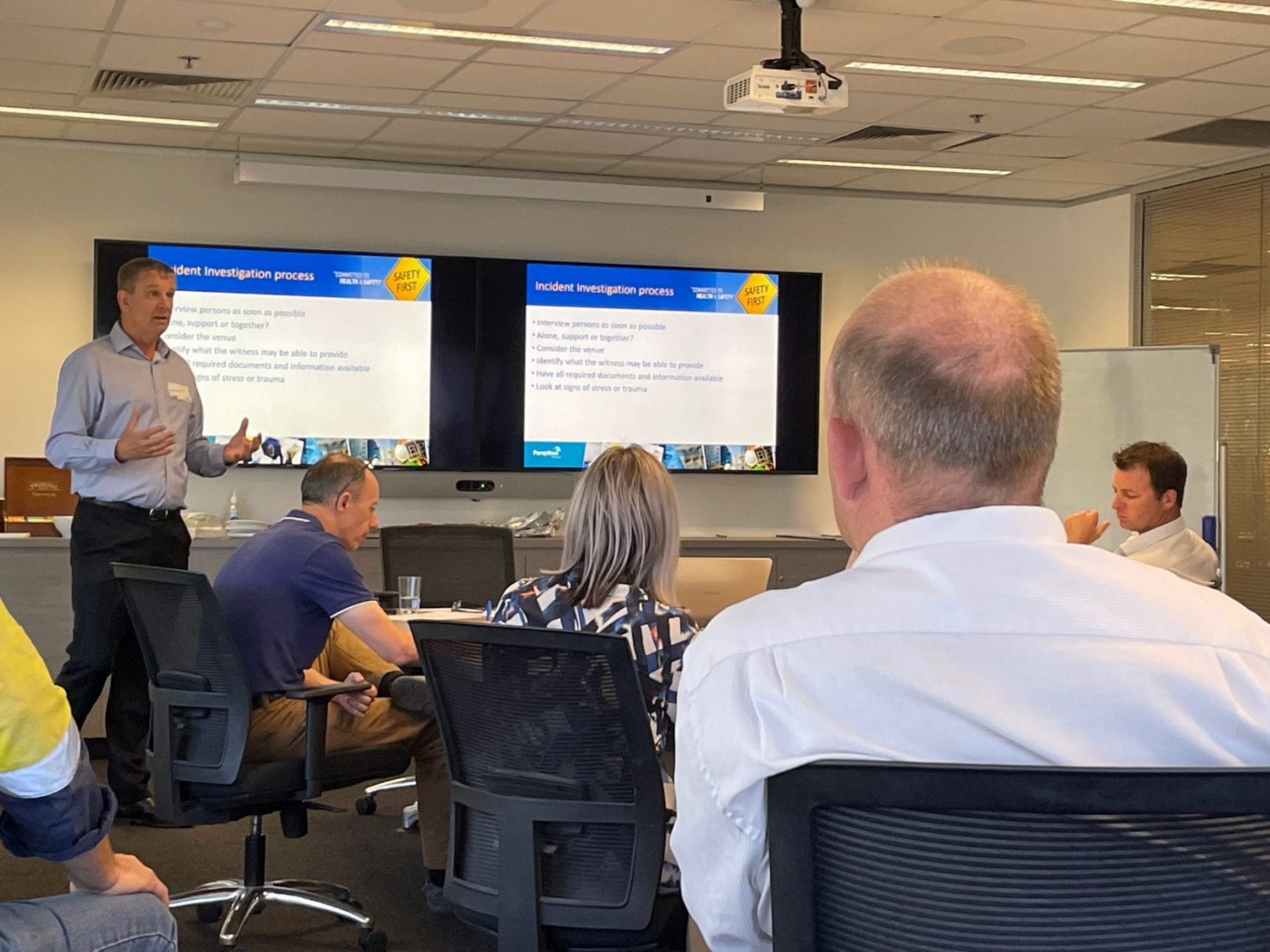Leading Australian grain storage and handler, Viterra, is investing in building its investigation capability through ICAM training for benefits that go beyond safety.
ICAM for safety investigations but also business improvement
ICAM (Incident Cause Analysis Method) is a training program commonly used in the mining sector, but agricultural company Viterra is using it to not only improve outcomes from safety investigations, but to build capability in investigations for overall business improvement.
Safety is paramount at Viterra says its Senior Safety Health and Environment Advisor, Shaun Mitton. To ensure Viterra can maximise learnings from safety and other types of incidents, Viterra asked Forsythes Training to deliver its ICAM training course for nine staff from across South Australia. This cross function team of participants included employees from safety, human resources, operations, maintenance, engineering and operational management.
Even a week after the training, the benefits of the course had become evident, with a more effective and efficient investigation undertaken by two of the training participants. This resulted in better learnings for the business, and more defined corrective actions that will have a direct impact on the safety of employees.
“The response highlights the benefit of training cross functional teams in the ICAM process,” Shaun says.
“They were on the same page. Identifying root cause and appropriate corrective actions quickly, ultimately leads to a better outcome for our employees.”
The training solution

Forsythes Training is based in NSW but sent its experienced ICAM trainer Steve Williams to South Australia to deliver the course.
Viterra wanted a greater focus on practical investigation skills, rather than needing people to have a formal qualification, so Forsythes Training tailored its program to a more practical, non-accredited, course with more emphasis on role playing and exercises.
Keys to ICAM training success
Shaun says Forsythes Training’s professionalism, adaptability, customisation of the program and the quality of its trainer were key to a successful training program.
“The trainer, Steve Williams, was fantastic,” Shaun says.
“He knows the content back to front and was very good at facilitating practical experience.”
Shaun says the training went very smoothly.
“It was easy to organise despite being in a different state and I didn’t have to do any running around or chase people up.”
“Everything was delivered on time and any issues or questions were quickly addressed.”
“I’d recommend Forsythes Training for ICAM training and we are hoping to put more cross functional teams through the course – with Forsythes Training. “
Participant feedback
Shaun says participant feedback was overwhelmingly positive.
There was praise for the trainer.
“Yes – I thought the trainer was suitable, his ability to present topics and also provide relevant input when required was helpful and made the course more relatable to our business.”
“I enjoyed the real life examples that were used throughout.”
“Yes – very relatable with his real life investigations, talking about learnings and mistakes was engaging.”
Participants said the training will change how they approach a “problem” or “issue” that requires further investigation?
“Yes, I feel the methods, like PEEPO and fishbone, could be applied to investigations I commonly carry out, which would assist with fleshing out the issue and helping to consider all possible causes.”
“I think it will assist me in asking the right questions and being able to get the answers the first time, rather than having to reinterview etc.”
The ICAM training is worthwhile for other colleagues.
“Yes – we need to understand the root cause, whether it affects safety, maintenance, engineering, financial etc.”
“Yes – for anyone who is involved in any level of investigation around an incident of any type – safety, quality, people.”
“Definitely a tool worth having, particularly the timeline and fishbone.”
Comments on the usefulness of the ICAM training for participant’s roles.
Yes. I had done similar training before but this training was a bit more thorough and also involved the ICAM component and recommendations at the end. Previous training wasn’t as people focused and didn’t consider human resources and legal aspects.
Yes, I think that the tools given were relevant to certain aspects of my role, specifically timelines and assisting others with ICAM investigations and in general, knowing what is required to be done when a safety (or other) incident occurs and what first steps would be.
Yes, processes and tools would be relevant to any type of investigation. Level of involvement would depend on how the business proceeded and severity.
Participants also commented on the additional benefits of having a mixture of staff roles, from different regions, in the one course.
About the Forsythes Training ICAM training course

ICAM lead investigators are an asset for any organisation wanting to maximise learning from adverse events, to avoid reoccurrence, and to improve future resilience to hazards.
This course introduces best practice in incident investigation and teaches practical skills to apply in your workplace. The course content is mapped to the unit of competency BSBWHS505 Investigate WHS Incidents. Participants have the option to complete the assessment.

